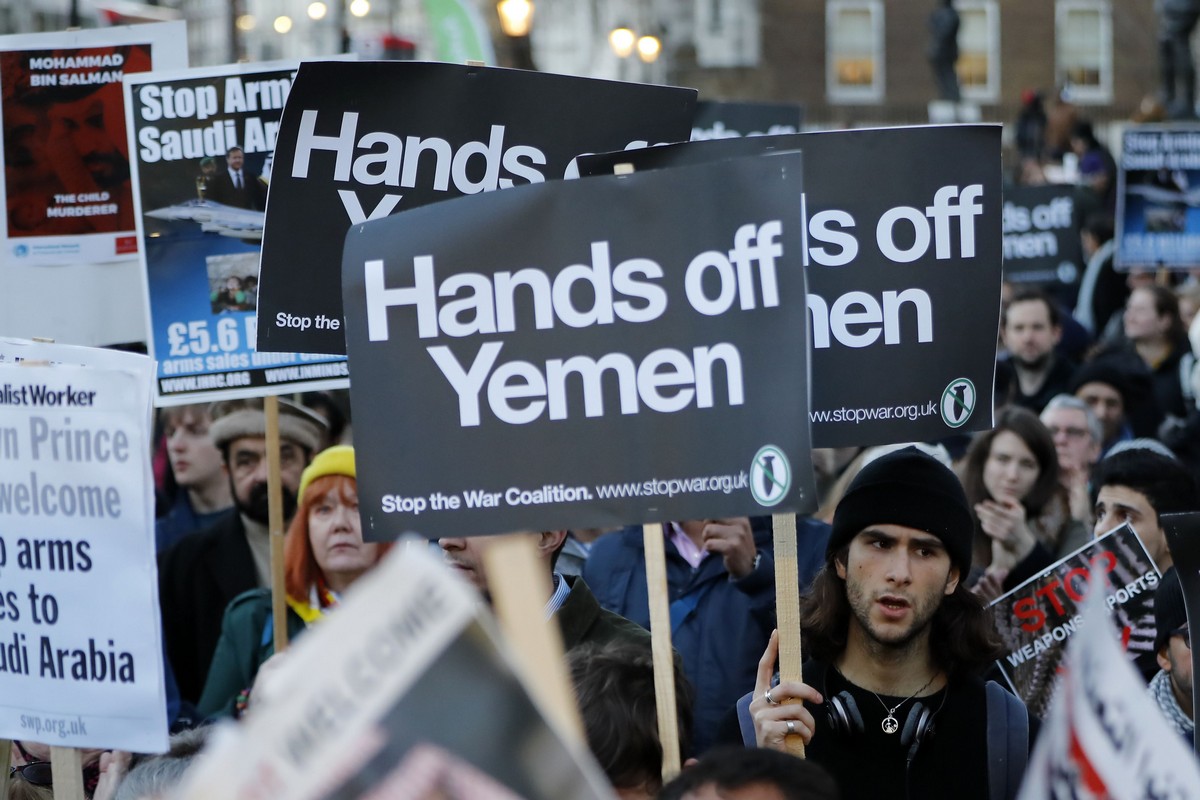
Campaigners in Britain have launched a new legal challenge to the government’s decision to resume arms sales to Saudi Arabia. Activists for Campaign Against the Arms Trade (CAAT) have filed for a judicial review of the decision which saw British arms sales resume in July after a year-long moratorium on granting new export licences.
CAAT warned that the British government’s decision could “fuel destruction and prolong the conflict [in Yemen]”. A UN report published last month noted that countries which armed parties involved in the conflict, including Saudi Arabia, could be “aiding and assisting” war crimes. The report claimed that there were “documented patterns” of serious international humanitarian law violations, reported the Guardian.
Sales were halted by a high court order in June 2019, over concerns that British weapons were being used by Saudi Arabia in what are alleged to have been war crimes in Yemen. The order also said that ministers had signed off on arms exports without properly assessing the risk to civilians and ordered the then International Trade Secretary, Liam Fox, to review weapons sales to the oil-rich Kingdom.
However, a British government review earlier this year concluded that potential war crimes incidents were “isolated”. It also claimed there was no “pattern” of Saudi Arabian air strikes breaching international law, and allowed arms sales to resume. “The government will now begin the process of clearing the backlog of licence applications for Saudi Arabia and its coalition partners that has built up since 20 June last year,” said Trade Secretary Liz Truss.
READ: Former government lawyer ‘ashamed’ of defending UK over Saudi arms sales
“Tens of thousands of people have been killed in this brutal bombardment, yet arms companies have profited every step of the way,” explained CAAT spokesperson Andrew Smith. “These arms sales have only fuelled the destruction and prolonged the conflict. Last year, the court of appeal found that the government has acted illegally, and nothing that we have seen since suggests otherwise.”
While the British government may think that the widespread destruction of schools, hospitals and homes can be dismissed as ‘isolated incidents’, added Smith, CAAT does not. “These arms sales are immoral, and we are confident that the court will confirm that the decision to renew them was illegal.”
In August, Yemen-born British soldier Ahmed Al-Batati protested in his uniform outside Whitehall about the arms to Saudi Arabia issue. Al-Batati blew a whistle every ten minutes for nine and a half hours to mark how often a child dies in Yemen. The 21-year-old soldier said he was refusing to resume his military service until the government ended arms sales with Saudi Arabia. He was arrested by Military Police.
Yemen has been gripped by a brutal civil war between Iranian-backed Houthi rebels and the country’s government, which is supported by a Saudi-led coalition, since 2014. Years of violence, blockades and primarily Saudi-led air strikes have turned the country into the world’s worst humanitarian crisis, with nearly 80 per cent of the population relying on aid to survive.